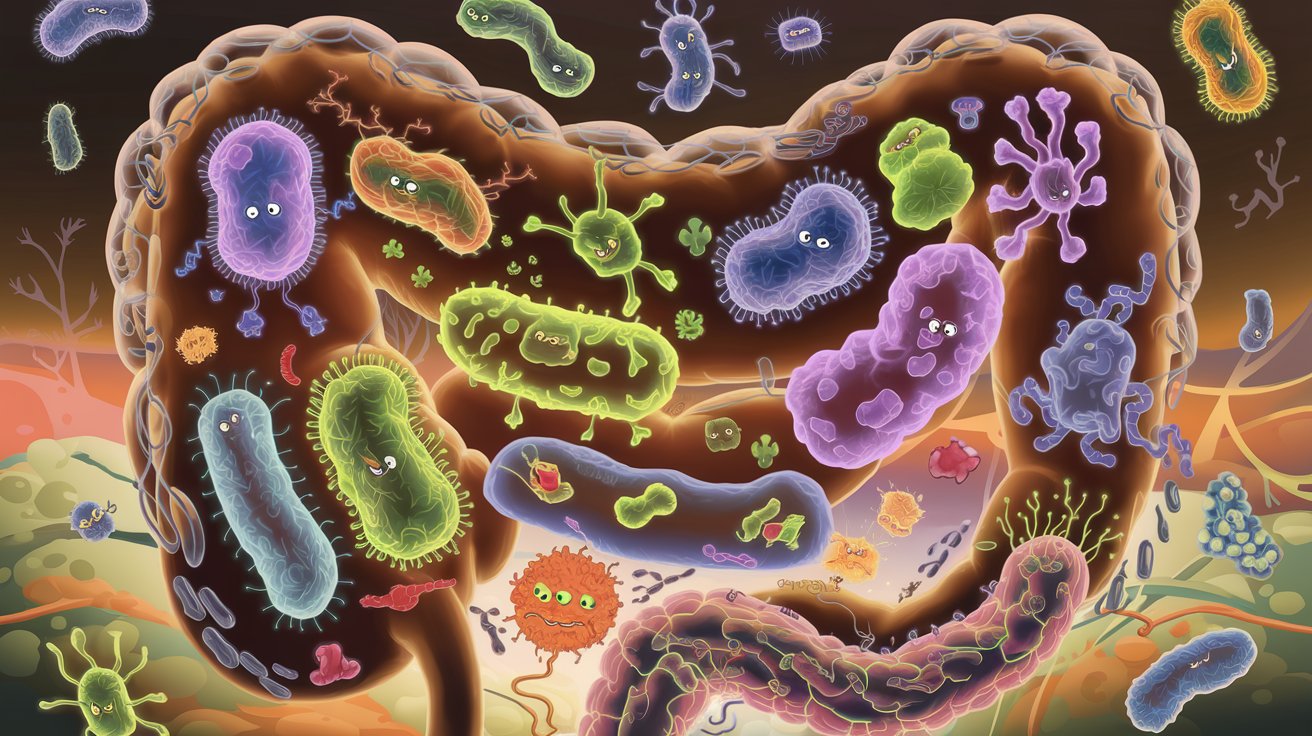
The Surprising Link Between Gut Bacteria and Decision-Making
When it comes to making decisions, most people think the process begins and ends in the brain. But what if the key to better decision-making isn’t just in your head, but in your gut? Emerging research reveals that the trillions of microorganisms in your gut – collectively known as the gut microbiome – play a significant role in influencing your decisions, from risk-taking to emotional processing.
The Gut-Brain Connection: A Two-Way Street
The gut-brain connection operates like a two-way street, with constant communication flowing between your gut and brain through the vagus nerve. The microbiome, often referred to as the “second brain,” doesn’t just aid digestion; it also influences neurotransmitter production, emotional regulation, and cognitive function.
About 95% of the body’s serotonin, a key neurotransmitter for mood and decision-making, is produced in the gut. Gut bacteria also affect dopamine production and regulate tryptophan levels, which are precursors to serotonin. Healthy gut bacteria can even impact brain inflammation, a factor that significantly influences cognitive processes.
How Gut Health Shapes Decision-Making
Recent studies show that individuals with a more diverse and balanced gut microbiome make more future-oriented and less impulsive decisions. They also process emotional information differently, prioritizing fairness and making choices that align with long-term benefits. This happens through direct neurotransmitter production, signaling via the vagus nerve, and reduced inflammation, all of which enhance brain function.
One fascinating discovery is the role of gut bacterial metabolites. These are chemical compounds produced by gut bacteria that influence brain signaling systems, including areas responsible for emotional regulation and executive function. A standout example is butyrate, a postbiotic compound known to strengthen the gut lining, reduce inflammation, and regulate serotonin production.
The Emerging Role of Postbiotics
You may have heard of probiotics (beneficial live bacteria) and prebiotics (fibers that feed those bacteria), but postbiotics are the next frontier. These bioactive compounds are produced when gut bacteria ferment prebiotic fibers, and they include short-chain fatty acids like butyrate, enzymes, peptides, and certain vitamins. Postbiotics not only support gut health but also have a direct impact on brain function.
Postbiotics have been shown to:
- Strengthen the gut lining
- Reduce harmful bacteria
- Support immune function
- Regulate neurotransmitter production
Researchers are even exploring the potential of postbiotics as therapeutic tools for conditions like obesity, metabolic syndrome, and inflammatory diseases. But for everyday benefits, the focus remains on improving your diet to naturally boost postbiotic production.
Timeline for Gut-Brain Changes
If you’re considering dietary changes to enhance your gut health, here’s what to expect:
- Days 4-14: Initial changes in gut bacteria composition
- Weeks 2-6: Noticeable improvements in mood, mental clarity, and emotional processing
- Months 2-3: Long-term adaptations in neural pathways, enhancing decision-making and resilience
Interestingly, this timeline mirrors how long traditional serotonin-based antidepressants, like Prozac or Lexapro, take to show effects. While prescription medications may have a stronger impact, diet-driven changes empower you to improve brain function naturally.
Practical Tips for a Healthier Gut and Better Decisions
Here are five actionable steps to improve your gut health and, in turn, your decision-making:
- Diversify Your Diet: Aim for 30 different types of plant-based foods each week. Variety supports a diverse microbiome, which enhances postbiotic production. Include herbs and spices for an easy way to boost variety.
- Experiment with Fermented Foods: Introduce foods like kimchi, kefir, or sauerkraut to add beneficial bacteria to your gut.
- Increase Fiber Intake: Add chia seeds or flaxseeds to your meals. These prebiotics feed gut bacteria and support postbiotic production.
- Limit Artificial Sweeteners: Avoid artificial sweeteners, which can disrupt bacterial metabolism and harm gut health.
- Maintain Consistent Meal Times: Predictable meal schedules support the circadian rhythms of your gut bacteria, enhancing their efficiency.
Avoid the Supplement Trap
While postbiotic supplements are becoming available, research suggests that food-based sources combined with a healthy diet provide the most sustainable benefits. Supplements can complement a balanced diet, but relying solely on them may not deliver the same long-term results.
The Bigger Picture: Building Resilience
Improving gut health isn’t just about making better decisions today. It’s about creating a positive feedback loop where better decisions lead to healthier choices, further enhancing gut health and brain function. This cycle contributes to mental clarity, emotional regulation, and cognitive resilience as you age.
As researchers continue to explore the potential of postbiotics, their use in enhancing decision-making under stress and improving emotional regulation could revolutionize mental wellness strategies.
Start Small, Think Big
Change doesn’t have to be overwhelming. Start with one simple adjustment, like adding fermented foods to your meals, and observe how it impacts your mood and mental clarity over the next few weeks. Small, consistent changes can lead to profound and lasting benefits for your mind, brain, and overall resilience.
Building a healthier gut isn’t just about physical well-being—it’s a key step toward strengthening your mental health and enhancing your ability to adapt to life’s challenges.